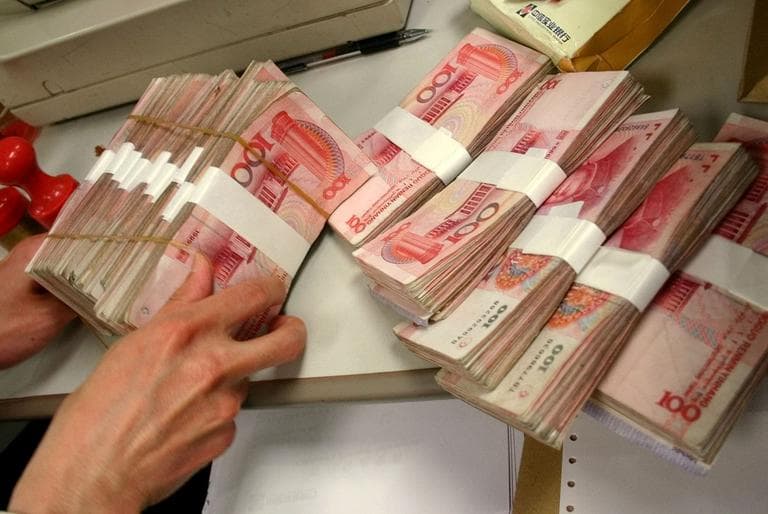Advertisement
Presidential Candidates Expected To Clash On China
Resume
China - where nearly half of all of the world's consumer electronics are made - is expected to be as much of a flashpoint in tonight's presidential debate as it was in last week's.
Will Republican Mitt Romney once again promise that on "day one" of his presidency he will call China a "currency manipulator," enabling it to sell its goods more cheaply around the world?
Romney's tough talk has angered the Chinese and worried some U.S. business leaders, who don't want a trade war to start.
In the debate last week, President Obama acknowledged that the manufacturing jobs that have gone overseas are not coming back. He then pivoted, saying that's why the U.S. needs to invest more in science education and research.
Romney said the solution to bringing back manufacturing jobs is "very straightforward" - stop China's currency manipulation, and make America attractive for entrepreneurs by reducing the corporate tax rate
President Obama is expected to point to his record of repeatedly filing trade claims against China. As NPR reported this morning, Obama's latest victory was over Chinese tariffs on U.S. steel exports.
James Fallows of The Atlantic was in China watching last week's presidential debate, a few miles from where iPads, Macs and iPhones are made. You can read his latest reporting on the Foxconn factory in China:
- The Atlantic: Inside Foxconn #4: New Recruits, 'Flying Tiger,' CEO
Fallows says he was surprised by some of the things he found inside the Foxconn factory. Yes, there were suicide nets at the factory, but there was also a nice cyber café for workers and two modern (though largely unused) swimming pools at worker dormitories.
And he tells Here & Now’s Robin Young that unlike other Chinese factories he’s visited where workers wear corporate coveralls, workers at Foxconn wear their own clothes, which gives the factory a less militaristic feel.
Guest:
- James Fallows, national correspondent for The Atlantic
This segment aired on October 22, 2012.